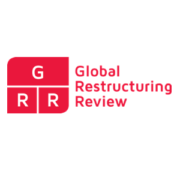Argentine Publisher Files for Chapter 15 Recognition in Florida to Access Citibank Account
By Benjamin Clarke
One of the court-appointed liquidators of a “prominent” Argentine publishing company has filed for Chapter 15 recognition in Florida, in an effort to repatriate funds from a bank account held with Citibank in the US.
Co-liquidator Mario Risso, of Argentine firm Risso Plastina y Asociados, filed the petition before Judge Robert Mark in the US Bankruptcy Court for the Southern District of Florida on 24 January, requesting recognition as the foreign representative of Donnelley Argentina (DA).
DA is 98.47% owned by a company in Santiago that is a subsidiary of Chicago-headquartered communications network RR Donnelley.
According to the declaration Risso filed at court, DA filed a bankruptcy petition at the 19th Commercial Court of Buenos Aires in August 2014, claiming it was insolvent due “in part” to the Argentine economic crisis.
Counsel to Risso, Sequor Law partner Arnoldo Lacayo, tells GRR that although the economic crisis was the “primary driver” for the bankruptcy, there were other factors linked to the printing industry that predated the financial crisis.
Shortly after DA started the proceedings, Argentina’s then president Cristina Fernandez de Kirchner accused its US parent company of breaching anti-terrorism laws, according to the Chicago Tribune.
Kirchner allegedly said Donnelley had breached the laws because the shutdown of its Argentine subsidiary “will exacerbate her country’s economic woes”. Argentina’s federal tax authority also called for the arrest and imprisonment of DA’s directors, accusing the company of committing acts of fraud.
The Buenos Aries court appointed Riso’s firm as co-liquidator, together with another Argentine outfit, Rego Saavedra, represented by Ana Rego and Maria Saavedra.
During their investigation into the assets and liabilities of DA, the liquidators discovered that the company held a bank account with Citibank in the US. On 13 October, the Argentine court authorized them to take action in the US to recover any funds.
Risso filed the Chapter 15 petition to enable the liquidators to “communicate with Citibank” regarding the account, and “take steps to repatriate the funds to the foreign proceeding”.
He told the court he had satisfied each of the requirements for recognition under Chapter 15, and requested a stay against any action concerning DA’s estate.
Judge Mark has listed a recognition hearing to take place on 20 February.
In the United Bankruptcy Court for the Southern District of Florida
In re R.R. Donnelley Argentina, S.A.
Judge Robert Mark
Counsel to the foreign representative
‐ Sequor Law
Partner Arnoldo Lacayo and attorney Cristina Beard in Miami
Foreign representative
‐ Risso Plastina y Asociados
Mario Risso in Buenos Aires



